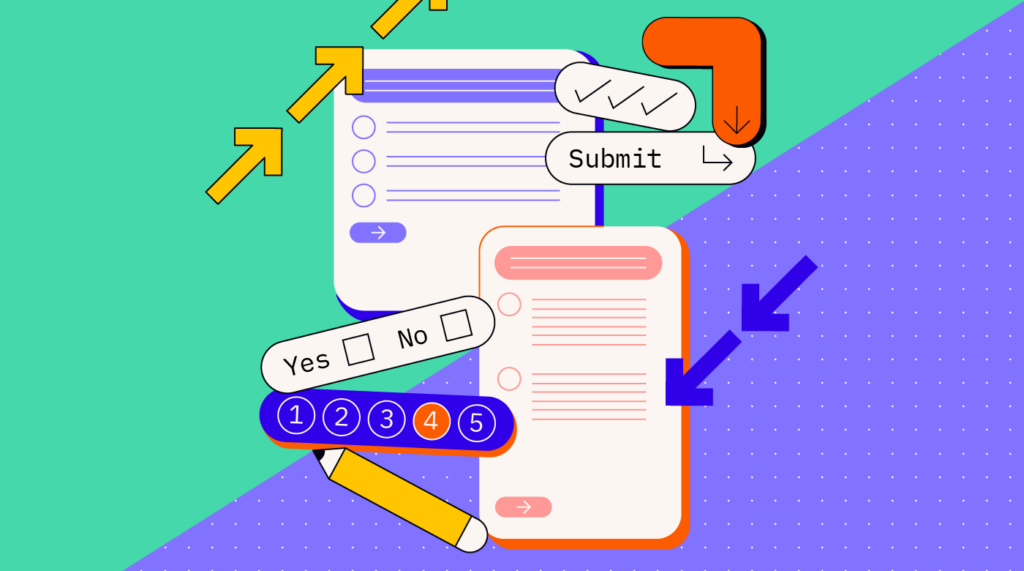Recently, a client asked me for tips on increasing response rates for customer satisfaction surveys. I'm usually pretty weary of wading into such conversations for several reasons. This sort of query comes in a lot.
Clients wonder how to ask customers to fill out a survey more reliably, so here’s what I tell/ask to help them get more out of their surveys.
It’s a numbers game
First, I'm a no-kidding statistician, so I'm never sure exactly how specific they want to get when it comes to esoteric things such as self-selection bias, survey fatigue, and statistical significance and such.
Technical discussions along these lines usually make eyes gloss over and even I end up over my head after a few rounds. So sometimes it's best just to stick with general Customer feedback conversations instead. (And don't get me started on the drawbacks of Net Promoter Score. These issues are universal, though, whether you're using NPS, a CSAT survey, Customer Effort Score, or anything else.)
Quantity over quality?
Secondly, from an execution perspective, often all the inquirer is looking for is, well, more. "How do I get more people to respond?" More? Or more useful? That's often where the conversation goes off the rails.
Far too often, when we discuss Voice of the Customer (VoC), we substitute quantity for quality.
Now, we don't always have to substitute, per se; both can be true, and we'd much prefer more and better responses to provide truly valuable insight.
But the latter is certainly more desirable. If only one customer identifies a fatal flaw in your system, you don't necessarily need (and heavens, you don't want!) a flood of complaints into your customer service/customer support department in order to spur yourself into action.
Carrots and sticks
But the ultimate problem with framing the VoC volume question the way most people do is that they're looking for some sort of best practices or tactic; some magic way of incentivizing their customers to respond just so they'll feel better and more validated about what they do with those survey responses.
Since all they want is more, any method will do, and frankly, that's all they're looking for: a method to incentivize any respondent to reply.
Should I use an email survey or a Google form or Survey Monkey or some sort of social media vehicle? Is my customer survey too long? Are the survey questions themselves individually too long? Is it going to the right people?
Should I offer some sort of compensation (Starbucks cards can go a long way)? Is it on the right platform or channel? Quite frankly, these folks are hoping someone can come along and simply say, "ah, your survey is just fine, but with this or that little tweak, the flood gates will open and you'll be inundated with responses."
Think broader than simply “more”
Do they look at their customer satisfaction survey as a part (albeit, an important part) of a much larger Customer Experience machine. When your CX work starts and ends with your Voice of the Customer (and when, in turn, your VoC consists of nothing but a survey anyway), the work itself of surveying becomes its own indicator of success...more survey question responses means more results, which means we're really really "doing" CX! Each additional survey respondent is another feather in your cap.
But that's it? Is collecting (and reporting, don't forget the reporting... those PowerPoint slides won't make themselves!) feedback survey results your whole CX program? If it is, that's why you're not getting enough responses.
It's because you're not walking the talk.
Don’t just say it…do it
When you send out your survey invitation, surely you start with an expression of gratitude that your Customers chose you as a vendor or service provider or whatnot: "Thank you for your recent purchase."
You may even lean into your ask by expressing ahead of time a thankfulness for what you're about to request from them, seasoned with an appeal to their better nature: "Your feedback is very important to us and we'd really appreciate your honest feedback as it would help us to improve our performance."
But here's the thing: Do you really mean any of that?
Surely that first part, yes. I don't doubt that you're genuinely appreciative that your Customers are your Customers. So yes, you're thankful for their recent purchase. But when you go further, and, even before they've given it, declare the importance of and your gratitude for their feedback, you're really sticking it out there. Here's where I have to ask: Is that really the case? And what do you have to show it is?
One of my favorite lines (one I never grow tired of using...it's in my book, and seems to show up every fourth or fifth article I ever write, so here it is now!) comes from Ralph Waldo Emerson: "What you do speaks so loudly, I can't hear what you're saying."
It's one thing to declare that your Customers' opinions are important to you, it's another thing to demonstrate your gratitude for it by actually doing something with what they've shared with you.
Do you have a system in place to analyze the results of your VoC program (to include other methods of insights, not just surveys) with the intent not simply to report on them? Do you use these insights to help guide your process improvement roadmap? Do you prioritize (based on things like Root Cause and Pareto Analyses) your efforts to make your systems and processes better and more in line with your Brand Promise based on what you hear from your Customers?
Even more importantly, do you actually dedicate resources and time and energy and attention to taking that action? Can you show—through not what you say in your survey request, but rather in what you (regularly, reliably, consistently) do with what you learn from your surveys—that you really are grateful for your Customers' feedback, and that you really do make your Customers' experiences better as a result?
Or is the culmination of all your Customers' feedback from all prior surveys summed up in the farthest-most-right dot on a line graph somewhere in a report to your executive team?
What really motivates: Results
People, individually, are incentivized by a wide variety of motivations. Yes, offering a gift card or a chance to be entered into a raffle for a wonderful prize can help increase your response rate to some degree, maybe capturing a few folks who otherwise may not be inclined to participate. There are various schools of thought about the efficacy of such approaches… how valuable, after all, might those responses be if a customer's only in it for the kick-back?
Likewise, nobody's got time for a 45-minute, 250-question survey (I'm looking at you, Department of Defense). Unless you're front-loading those with your most vital queries, and capturing even incomplete submissions, your response rate will be in the tank for sure.
Still, as I said, there's no magic bullet... no simple formula to improve your volume of completed surveys and, even if that were the case, you're not necessarily going to get much on which you can act.
Any gimmick to increase the number of people who respond to your survey is going to come with its own set of drawbacks—cost, quality, etc. So a gimmick won't do.
You Want A Trick? Here’s Your Trick:
So, with all that said, okay... you want a tactic? A trick? Try this one: find a place in your appeal for responses to include evidence that your customers' feedback matters to you.
Offer an example of how you incorporated previous feedback to improve your service or your product. Tell of how, on an earlier occasion, a customer provided you with insights that led to your taking direct action, fixing or changing something, and how the customer who's receiving this very invitation to fill out another survey benefitted from that chain of events.
Show that there are concrete results from what you learn thanks to your customers' survey replies, and you'll get a whole lot more of them, I guarantee.
Don't have such results? Well, you've got work to do, and your survey response rate probably isn't your biggest issue.
Some further reading:


